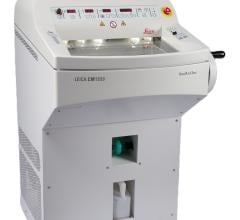
March 5, 2020 — CLEW announced that it will be demonstrating the industry’s first-ever AI-powered critical care solution at two major industry tradeshows: The Society of Critical Care Medicine’s (SCCM) 49th Critical Care Congress, Feb. 16-19, and at the HIMSS Conference, March 9-13. Both healthcare events are taking place in Orlando, Fla.
Clinicians at UMass and WakeMed are testing the use of AI/predictive analytics to risk-stratify ICU patients by acuity to optimize patient flows and deployment of clinical resources. CLEW is the first technology to provide clinical predictive intelligence 6-14 hours in advance. Pending FDA approved (filing completed), this technology represents the innovation healthcare system need to optimize scarce healthcare resources—every day and during a crisis.
The CLEW solution harnesses vast amounts of clinical and patient data in real-time to deliver highly accurate predictive clinical analytics. Using prediction models CLEW provides ICU and TeleICU providers with preemptive patient care information, enabling continuous patient risk stratification, acuity-based resource allocation, clinical optimization, and improved case volumes.
Commenting on the need for a meaningful breakthrough in the delivery of healthcare, CLEW founder and CEO Gal Salomon said, “Using artificial intelligence is the only way to create change that really moves the needle to deliver true patient value. With its U.S. market launch, CLEW aims to help U.S. health systems improve clinical outcomes and the patient experience by shortening stays and improving efficiency while reducing costs.
Craig Lilly, M.D., vice-chair, Critical Care Operations and Director of the eICU program at UMass Memorial commented on the use of AI in critical care, “Rather than reacting or having alerts and alarms in the room that tells us that a patient is deteriorating, we know ahead of time so that we can intervene in a way that prevents the patient from ever having any symptoms in the first place. It's truly an advance.”
For more information: www.clewmed.com/


 February 13, 2026
February 13, 2026 









